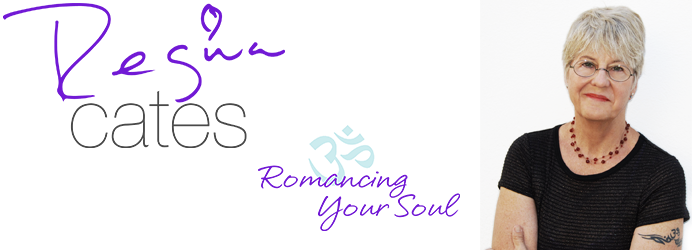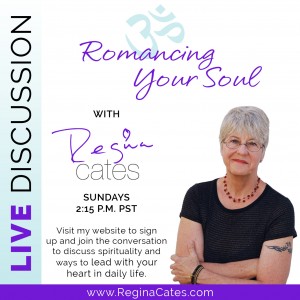 It’s okay to get angry and frustrated at times, but it’s not okay to make these a lifestyle.
It’s okay to get angry and frustrated at times, but it’s not okay to make these a lifestyle.
I smoked cigarettes for twenty two years. I spent over two decades harming myself rather than having the courage to express what I was so desperately keeping bottled up inside me. After a back surgery that left me with a limp, I ate without awareness or responsibility, and gained over 60 pounds. Again I was attempting to stuff my pain with abusing myself. So frustrated with my confusing childhood, I spent without responsibility, trying to put on a good show for the outside world that I was okay and happy. Inside I was miserable. I lived in fear of never being able to pay off the debt.
Beneath the self-abuse was anger. So many years of not being able to express myself, not setting boundaries, feeling resentful and blaming others for my screwed up life, left me with huge holes in my heart. Anger quickly moved in and took up residence. Anger became my lifestyle.
Repression of emotions is one of the major causes of addictions, abuse, depression, and disease in our culture. In many families, emotions are either repressed or expressed in abusive ways. As children and young adults we’re told too often that being angry is bad and we should just move on. When I got angry I was punished or shamed into repressing my emotions. I felt rejected and my emotions discounted. I’d express that I was angry, sad, fearful, disappointed, only to be told, “Oh no, you’re not feeling that.” As a child I learned to mistrust my own perceptions and deny what I felt. But, if we do not express anger in healthy ways we tend to turn that anger inward or outward.
Expressing anger by harming ourselves or others is actually being out of control. We get angry when we feel powerless. We feel frustrated not being able to control or change other people. We feel disappointed when someone betrays our trust, or gossips about us, or does not do what we think they should do when we think they should do it. Anger stems from feeling disapproved of, cornered or bullied. Anger arises when we feel cheated out of something we feel entitled to. We get upset when we do not feel others hear us, or speak to us with disdain, and when we feel unseen. Anger is a gut reaction to ineffective communication, not feeling understood, feeling taken advantage of, being abused, and not being able to express ourselves.
No matter how smooth and fulfilling your life is there will be times when you get angry. You are going to get frustrated, disappointed, be inconvenienced or experience pain as a result of other people’s behavior. It is healthy to acknowledge your upset, frustration, and disappointment. It is never healthy to take your anger out on others in the form of physical, emotional, verbal, or psychological abuse. That is never love and is not appropriate no matter what excuses you come up with, no matter how much you try to place blame on your spouse, child, pet, mother, etc.
Yes, other people’s behavior can be frustrating. And yes, it is okay to get angry but find healthy ways (run, walk fast, punch a punching bag, or yell into a pillow) to release your anger so anger does not become a lifestyle.
It’s okay to get angry and frustrated at times, but it’s not okay to make these a lifestyle.
I smoked cigarettes for twenty-two years. I spent over two decades harming myself rather than having the courage to express what I was so desperately keeping bottled up inside me. After a back surgery that left me with a limp, I ate without awareness or responsibility, and gained over 60 pounds. Again I was attempting to stuff my pain with abusing myself. So frustrated with my confusing childhood, I spent without responsibility, trying to put on a good show for the outside world that I was okay and happy. Inside I was miserable. I lived in fear of never being able to pay off the debt.
Beneath the self-abuse was anger. So many years of not being able to express myself, not setting boundaries, feeling resentful and blaming others for my screwed up life, left me with huge holes in my heart. Anger quickly moved in and took up residence. Anger became my lifestyle.
Repression of emotions is one of the major causes of addictions, abuse, depression, and disease in our culture. In many families, emotions are either repressed or expressed in abusive ways. As children and young adults we’re told too often that being angry is bad and we should just move on. When I got angry I was punished or shamed into repressing my emotions. I felt rejected and my emotions discounted. I’d express that I was angry, sad, fearful, disappointed, only to be told, “Oh no, you’re not feeling that.” As a child I learned to mistrust my own perceptions and deny what I felt. But, if we do not express anger in healthy ways we tend to turn that anger inward or outward.
Expressing anger by harming ourselves or others is actually being out of control. We get angry when we feel powerless. We feel frustrated not being able to control or change other people. We feel disappointed when someone betrays our trust, or gossips about us, or does not do what we think they should do when we think they should do it. Anger stems from feeling disapproved of, cornered or bullied. Anger arises when we feel cheated out of something we feel entitled to. We get upset when we do not feel others hear us, or speak to us with disdain, and when we feel unseen. Anger is a gut reaction to ineffective communication, not feeling understood, feeling taken advantage of, being abused, and not being able to express ourselves.
No matter how smooth and fulfilling your life is there will be times when you get angry. You are going to get frustrated, disappointed, be inconvenienced or experience pain as a result of other people’s behavior. It is healthy to acknowledge your upset, frustration, and disappointment. It is never healthy to take your anger out on others in the form of physical, emotional, verbal, or psychological abuse. That is never love and is not appropriate no matter what excuses you come up with, no matter how much you try to place blame on your spouse, child, pet, mother, etc.
Yes, other people’s behavior can be frustrating. And yes, it is okay to get angry but find healthy ways (run, walk fast, punch a punching bag, or yell into a pillow) to release your anger so anger does not become a lifestyle.
Join the Live Discussion with Regina!

 …For what you already have in life and tearing up the list of what you do not have will be gratifying.
…For what you already have in life and tearing up the list of what you do not have will be gratifying.
Feedback